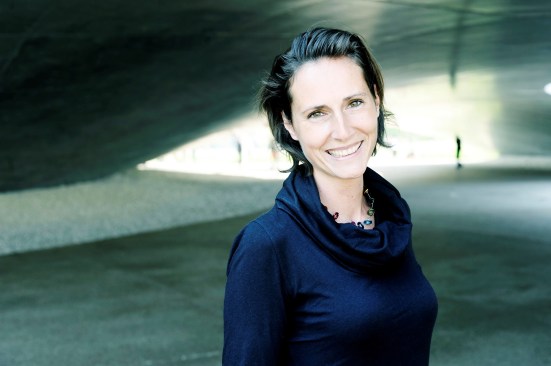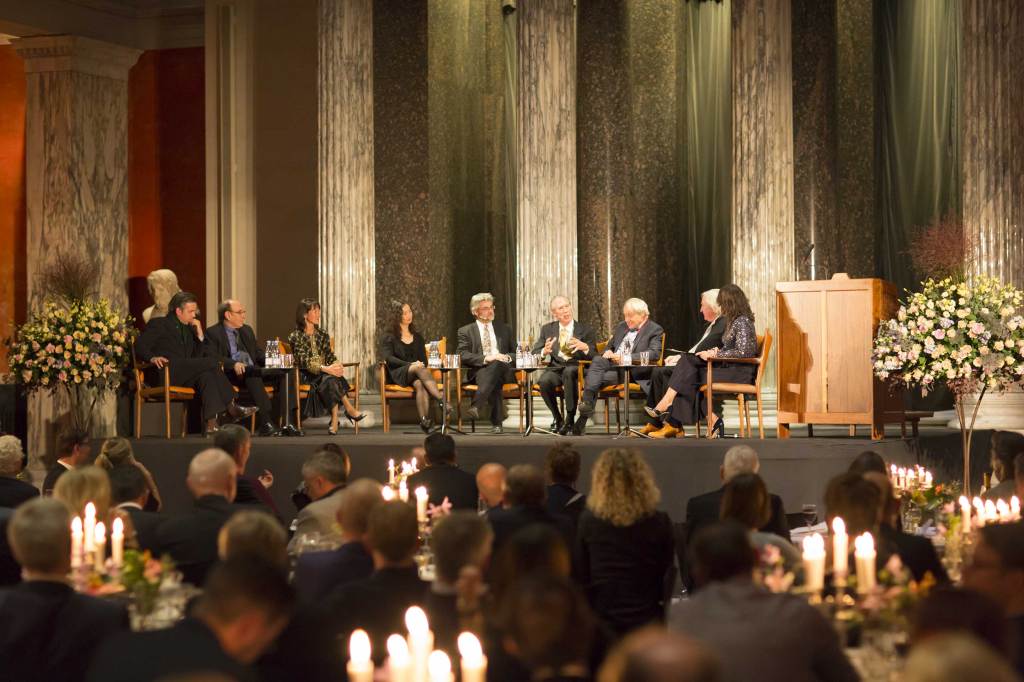On November 2, 2016, in an awards ceremony in Copenhagen, The Daylight Award was presented to educator and researcher Marilyne Andersen and architect Steven Holl. The program “honors and supports daylight research and daylight in architecture, for the benefit of human health, well-being and the environment” with a “specific emphasis on the interrelation between theory and practice.”

Courtesy The Daylight Award
Marilyne Andersen, professor of Sustainable Construction Technologies and Dean of the School of Architecture, Civil and Environmental Engineering (ENAC) at EPFL (École Polytechnique Fédérale de Lausanne)
The laureate of The Award for Daylight Research is Marilyne Andersen. The awards committee recognized Andersen, who is professor of Sustainable Construction Technologies and Dean of the School of Architecture, Civil and Environmental Engineering (ENAC) at EPFL (École Polytechnique Fédérale de Lausanne), as “an outstanding contributor to internationally recognized daylight research by combining research with practice and focusing on the impact on the health, well-being, and experience of building users thereby placing her in the forefront of the inter-disciplinary field in daylight.”
In receiving this honor Andersen said, “Research in daylight is a never ending quest for dynamic, multifaceted quality in spaces. It brings opportunities to connect to remote research fields, from neuroscience to psychophysics or computational engineering, and carries an emotional connection in every aspect. The Daylight Award in Research is a wonderful recognition of the ongoing and much needed efforts to push the question about what is good daylighting to new horizons… though we already know there will never be a simple or single answer to it.”

Mark Heithoff
Steven Holl, principal of Steven Holl Architects, New York City and Beijing.
The laureate of The Award for Daylight in Architecture is Steven Holl, principal of Steven Holl Architects, New York City and Beijing. The awards committee bestowed the honor for Holl’s “continuous and inspiring work in highlighting space and light in his architecture, creating experiential and emotive architecture with a strong focus on the human experience.”
On receiving this prestigious award Holl said, “I am deeply honored to have been selected as the laureate for Daylight in Architecture. Space is oblivion without light. A building speaks through the silence of perception orchestrated by light. Luminosity is as integral to its spatial experience as porosity is integral to urban experience.”
The Daylight Award is presented by a trio of non-profit, private charitable foundations—Villum Fonden, Velux Fonden, and Velux Stiftung, established by Villum Kann Rasmussen—to support a wide range of scientific, social, cultural and environmental projects. The three foundations have presented daylight awards since 1980, and past recipients have included: a.o. Jørn Utzon, Henning Larsen, Bob Gysin, Richard Perez, Peter Zumthor, James Carpenter, Lacaton & Vassal, Gigon & Guyer, and SANAA.
“The importance of daylight in both research and architecture matters greatly because the impact of daylight is rising. Not only indoors but also as cities are becoming more dense, more vibrant and more populated,” said Hubert Klumpner, chairman of the jury and Professor of Architecture and Urban Design at ETH Zürich. “Given the importance of daylight, it is crucial that the fields of research and architecture exchange knowledge and work together. The fields must combine theory and practice in order to maximize the benefit of daylight for humans. In architecture, successful daylighting requires design considerations at all stages of the building design process from site planning to the building envelope and interior design. Daylight research should play a crucial role in each stage of this process, providing the architects and building professionals with the most recent studies and findings in the field. To ensure that daylight is an important part of future buildings, the fields of research and architecture must unite – and The Daylight Award is a step in this direction.”
